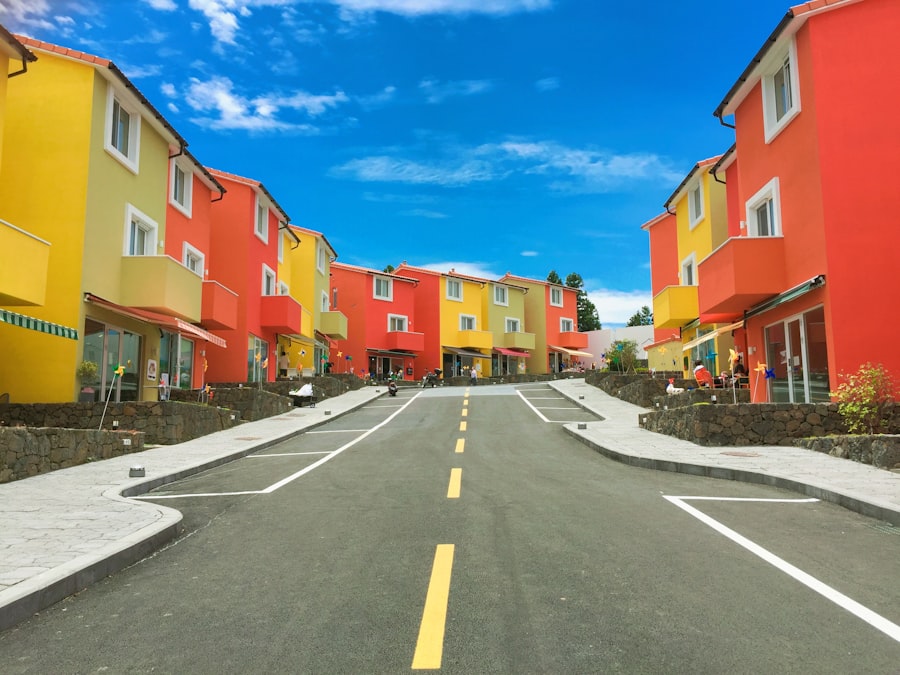In today’s world, the need for affordable housing has become increasingly critical. You may have noticed that housing prices have skyrocketed in many urban areas, making it difficult for individuals and families to find suitable living arrangements within their financial means. The rising cost of living, coupled with stagnant wages, has created a significant gap between what people earn and what they can afford to pay for housing.
This disparity not only affects your ability to secure a home but also impacts your overall quality of life, as housing stability is closely linked to health, education, and employment opportunities.
You might find that many families are forced to make difficult choices, such as sacrificing basic needs like food and healthcare just to keep a roof over their heads.
The urgency of this situation calls for a collective response from government entities, non-profit organizations, and communities to address the growing crisis. Understanding the need for affordable housing is the first step toward advocating for solutions that can help you and others in similar situations.
Key Takeaways
- Affordable housing is a critical need for many individuals and families, as housing costs continue to rise.
- Government assistance programs, such as Section 8 Housing Vouchers and the Low-Income Housing Tax Credit (LIHTC) Program, provide crucial support for affordable housing.
- Non-profit organizations play a key role in providing affordable housing options and support services for low-income individuals and families.
- Seniors, students, single parents, and veterans all have specific affordable housing options tailored to their unique needs and circumstances.
- Creative strategies, such as shared housing and community land trusts, can help individuals find affordable housing in challenging markets.
Government Assistance Programs for Affordable Housing
Government assistance programs play a vital role in addressing the affordable housing crisis.
Programs such as the U.S. Department of Housing and Urban Development (HUD) provide funding and resources aimed at increasing the availability of affordable housing options. These programs often focus on low-income households, ensuring that everyone has access to decent housing regardless of their financial situation. In addition to HUD, many states offer their own assistance programs tailored to local needs. You might find that these programs include rental assistance, homebuyer assistance, and even funding for the construction of new affordable housing units. By exploring these options, you can discover potential resources that may alleviate some of your financial burdens. Understanding the various government programs available can empower you to take action and seek the support you need to secure stable housing.
Non-profit Organizations Providing Affordable Housing

Non-profit organizations are another crucial component in the fight for affordable housing. These organizations often work tirelessly to create and maintain affordable housing options for those in need. You may have heard of well-known groups like Habitat for Humanity, which builds homes for low-income families through volunteer efforts and donations.
Such organizations not only provide housing but also foster a sense of community by involving local residents in the building process. In addition to construction efforts, many non-profits offer support services that can help you navigate the complexities of finding affordable housing. These services may include financial counseling, legal assistance, and educational programs aimed at empowering individuals and families to achieve long-term stability.
By connecting with these organizations, you can access valuable resources that may help you overcome barriers to securing affordable housing.
Low-Income Housing Tax Credit (LIHTC) Program
| Metrics | Data |
|---|---|
| Number of LIHTC Units Created | XXXX |
| Percentage of LIHTC Units Affordable | XX% |
| LIHTC Allocated Amount | XXXXX |
| Number of LIHTC Projects Funded | XX |
The Low-Income Housing Tax Credit (LIHTC) program is a significant federal initiative designed to encourage the development of affordable rental housing. If you are seeking affordable options, you might want to familiarize yourself with how this program works. Essentially, it provides tax credits to developers who build or rehabilitate rental properties for low-income tenants.
This incentive helps increase the supply of affordable housing while ensuring that developers can still make a profit. As a potential tenant, you may benefit from LIHTC properties without even realizing it. Many apartments built under this program are available at reduced rents, making them more accessible to individuals and families with limited incomes.
To find LIHTC properties in your area, you can visit state housing agency websites or consult local housing authorities. Understanding this program can open doors for you in your search for affordable housing options.
Section 8 Housing Vouchers
Section 8 Housing Vouchers are another essential resource for individuals and families seeking affordable housing. This federal program provides rental assistance to low-income households, allowing them to choose where they want to live while ensuring that their rent does not exceed a certain percentage of their income. If you qualify for Section 8, you can use your voucher to rent from private landlords, giving you more flexibility in your housing search.
To apply for Section 8 vouchers, you will need to meet specific income eligibility requirements and complete an application process through your local public housing agency. While waiting lists can be long in some areas due to high demand, securing a voucher can significantly reduce your housing costs and improve your overall quality of life. By understanding how Section 8 works and taking the necessary steps to apply, you can increase your chances of finding an affordable place to call home.
Affordable Housing Options for Seniors

As you age, finding affordable housing becomes increasingly important. Many seniors face unique challenges when it comes to securing suitable living arrangements, especially if they are on a fixed income or have limited mobility. Fortunately, there are various affordable housing options specifically designed for seniors that cater to their needs while providing a sense of community.
You might consider exploring senior living communities that offer subsidized rent or income-based pricing. These communities often provide amenities tailored to older adults, such as accessibility features and social activities that promote engagement and well-being. Additionally, some non-profit organizations focus on creating affordable housing specifically for seniors, ensuring that they have access to safe and comfortable living environments as they age.
Affordable Housing Options for Students
If you’re a student navigating the challenges of higher education, finding affordable housing can be particularly daunting. Many college towns experience high demand for rental properties, leading to inflated prices that can strain your budget. However, there are several options available that can help you secure affordable accommodations while pursuing your studies.
You may want to consider on-campus housing options offered by your university or college. These residences often provide more affordable rates compared to off-campus rentals and come with the added benefit of being close to classes and campus resources. Additionally, many institutions offer roommate matching services that can help you find compatible housemates to share costs with.
Exploring these options can ease some of the financial burdens associated with student life.
Affordable Housing Options for Single Parents
As a single parent, balancing work and family responsibilities while searching for affordable housing can be overwhelming. Fortunately, there are resources available specifically designed to assist single parents in finding suitable living arrangements without breaking the bank. Many local organizations offer programs tailored to support single-parent households by providing financial assistance or access to affordable rental units.
You might also explore community resources such as family shelters or transitional housing programs that cater specifically to single parents in need of temporary assistance. These programs often provide not only housing but also support services such as childcare resources and job training programs that can help you achieve long-term stability for yourself and your children.
Affordable Housing Options for Veterans
Veterans often face unique challenges when transitioning back into civilian life, including securing affordable housing. Fortunately, there are numerous programs and resources available specifically designed to assist veterans in finding suitable living arrangements. The U.S. Department of Veterans Affairs (VA) offers various housing assistance programs aimed at helping veterans access safe and affordable homes. You may want to explore options such as VA loans, which provide favorable terms for purchasing homes without requiring a down payment or private mortgage insurance. Additionally, many non-profit organizations focus on providing housing solutions specifically for veterans, including transitional housing programs that offer support during times of need. By tapping into these resources, you can find the assistance necessary to secure stable housing as you navigate life after military service.
Creative Ways to Find Affordable Housing
Finding affordable housing often requires creativity and resourcefulness. You might consider exploring unconventional avenues such as social media groups or community bulletin boards where individuals post available rentals or sublets at lower prices. Networking with friends, family, or colleagues can also lead you to hidden gems that may not be listed on traditional rental platforms.
Additionally, consider reaching out directly to landlords or property managers in your desired area. Sometimes negotiating directly with them can lead to more favorable rental terms or even lower prices than what is advertised online. By thinking outside the box and leveraging your connections within the community, you can uncover opportunities that may not be readily apparent in your search for affordable housing.
Resources for Finding Affordable Housing
As you embark on your journey to find affordable housing, it’s essential to utilize various resources available at your disposal. Websites like Zillow or Apartments.com allow you to filter searches based on price range and location while providing valuable information about neighborhoods and amenities. Local government websites often list available assistance programs and resources tailored specifically for residents seeking affordable options.
You might also consider contacting local non-profit organizations dedicated to addressing housing issues in your area. These organizations often have extensive knowledge about available resources and can guide you through the process of securing affordable housing effectively. By leveraging these resources and staying informed about available options, you can increase your chances of finding a home that fits both your budget and your needs.
In conclusion, navigating the landscape of affordable housing requires understanding the various options available and utilizing the resources at your disposal effectively. Whether you’re a senior citizen seeking stability in retirement or a student balancing academics with financial constraints, there are numerous avenues worth exploring in your quest for an affordable home. By staying informed about government programs, non-profit initiatives, and creative strategies for finding housing, you can take proactive steps toward securing a safe and comfortable living environment tailored to your unique circumstances.
Finding affordable housing alternatives can be a challenging task, especially in today’s competitive real estate market. However, there are several strategies and resources available to help individuals and families secure budget-friendly living arrangements. For those seeking practical advice and insights, an article on How Wealth Grows offers valuable tips on navigating the housing market and exploring various affordable options. This resource provides guidance on everything from government assistance programs to innovative housing solutions, making it a must-read for anyone looking to make informed decisions about their housing needs.
WATCH NOW!🫢 Your Rent Is Rigged By Wall Street
FAQs
What are affordable housing alternatives?
Affordable housing alternatives refer to housing options that are more budget-friendly than traditional housing options such as renting or buying a home. These alternatives may include co-living spaces, tiny homes, mobile homes, and subsidized housing options.
What are some common affordable housing alternatives?
Some common affordable housing alternatives include co-living spaces, where individuals share living spaces and amenities to reduce costs; tiny homes, which are small, often portable homes that are more affordable than traditional houses; and mobile homes, which are prefabricated homes that can be more affordable than traditional housing options.
How can I find affordable housing alternatives?
You can find affordable housing alternatives by researching online, reaching out to local housing organizations, and networking with others who may have knowledge of affordable housing options in your area. Additionally, some government agencies and non-profit organizations may offer resources and assistance in finding affordable housing alternatives.
What are the benefits of choosing affordable housing alternatives?
Choosing affordable housing alternatives can help individuals and families save money on housing costs, live more sustainably, and have more flexibility in their living arrangements. Additionally, some affordable housing alternatives may offer a sense of community and shared resources.
Are affordable housing alternatives suitable for everyone?
Affordable housing alternatives may not be suitable for everyone, as individual preferences and needs vary. Some people may prefer more traditional housing options, while others may find affordable housing alternatives to be a better fit for their lifestyle and budget. It’s important to carefully consider your own needs and preferences when exploring housing options.
